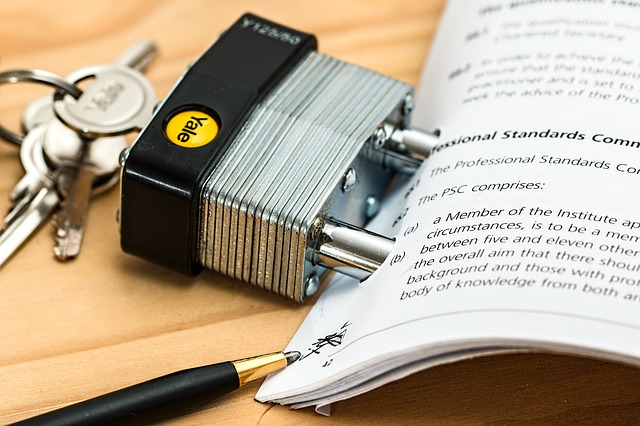Owning property abroad may seem like a dream, but it’s a process that’s filled with little pitfalls everywhere. The market may take a huge dip after you’ve invested all of your hard-earned savings. And, you don’t want the seller to fool you just because of you don’t understand the language. Or you might just be restricted by all the laws and regulations you don’t know about.
If you do your homework first, however, and take your time to actually get to know the place you’re investing in, you’ll have a much easier time. Plus, the better you know the place, the more people you get to know as well. It’s possible that they may prove invaluable when you’ve finally purchased that property.
Some of the links included in this post are affiliate links, meaning, at no additional cost to you, I will earn a commission if you click through and make a purchase.
This is a contributed post and do not necessarily reflect the opinions of Meet The Harris Family.
Which markets abroad are hot right now?
Some countries have been at the top of the list for some years now. That’s a good sign to most investors as it will probably continue to stay steady for a while to come. Spain is among these. It’s a favorite vacation destination for many, surrounded by a lot of other exciting European countries.
Lanzarote, specifically, is a great city to invest in right now. It’s beautiful as well, of course, perfectly warm and sunny all year. Plus, when you own property in Spain, you will always have a great excuse to take advantage of those super cheap tickets during the winter.
If you’d like to stay in the same area above but Spain doesn’t interest you… there’s always Portugal. Just as sunny, beautiful, and with enough culture to keep you satisfied. Also, the real estate prices of Portugal are quite affordable for foreign investors as well.
France is also a good country to invest in for foreigners as many regions are quite affordable. Yet, it’s not just about the money, though, is it? The lifestyle, nature, their culture – everything about France is tempting. Imagine having that feeling not just as a vacation experience but actually every day instead.
There you have it; the top three European countries to invest in if you’re looking for property abroad. Now it’s time to take a look at what it actually takes to invest in it so that you’re prepared for any challenge that may come your way.

Before deciding: Research the market
It may seem obvious, but researching the market is about more than simply knowing that Spain, Portugal or France are good countries to invest in. You need to know the region, the area, and the specific neighborhood in order to make an informed decision.
This is the main problem for those buying property abroad. Investors simply don’t know enough about the area. And, unfortunately may end up purchasing something that’s about to crack. Ask the locals, search online, and get in touch with other expats who also invested in the same area.
They should be able to not only guide you in the right direction, but they may also be able to set you up with a few of their own contacts. This will help you build a network of local helpers when you’re away.
Another point to this is that you should get in touch with a real estate agent right away. Or at least once you know where you’d like to invest. They will be able to give you some professional advice on the areas that are booming and which ones to stay away from, and you can inquire about the purchasing process to get some clarity as well.
When you’ve decided: Talk to a lawyer
When you’ve done your homework and know that you’re able to purchase in your chosen country, it’s time to make it official. Find a good lawyer and keep in touch with them throughout the process. You need to make sure that you have someone representing your own interests.
If you find a lawyer with some expertise in the country you’re investing in, he or she can give you some pretty good guidance on how it should be done. If you’re restricted as a foreign investor, you need to know how these restrictions work. Especially if you want to be able to rent it out while you’re not in the country.
The lawyer should, therefore, be fluent in both languages and able to navigate the laws of each market as well.
You will also need to understand how the tax system works as you’ll have to pay taxes in both countries you have property in. Don’t be afraid to ask for help. Especially now, when you’re making such a big purchase in a country you don’t really know. Overconfidence and naivety won’t get you very far in this situation.
And, of course, the legal documents from abroad will have to be translated to a language you’re fluent in before you sign anything. Don’t rely on your tourist Spanish or the French you learned while in university. You need to be fluent, so be sure to translate it before signing.

Financing your property abroad
Now we need to look at the difficult stuff. Financing a property is usually the biggest and most difficult step for all of us. However, it is even more so when you’re buying property overseas.
The easiest way is simply to pay in cash and get it over with right away. Keep an eye on the exchange rate before you make the transfer. As even the slightest change in the rate could drastically change the value of your property. It takes only one night to make your property completely unaffordable.
If you’d like to get a mortgage in order to finance your property, you may be able to find a few that offers this – but it’s sparse and often difficult to get. Have a look at the best home loan interest rates first, and search the web thoroughly before you make any final decisions.
Another idea is to take out an equity loan on your existing property at home. You’ll need to rent it out while you’re not there, though, so make sure that this is possible first. When you’re ready to move over for good, you simply sell your home to pay off the equity loan and become a true expat.
There you have it; you need to do quite a lot of homework before investing in a property, but the main thing is to have a few good helpers on your side. The more people you have to help you out who knows about the market in your specific country, the easier it will be to make an informed decision.


